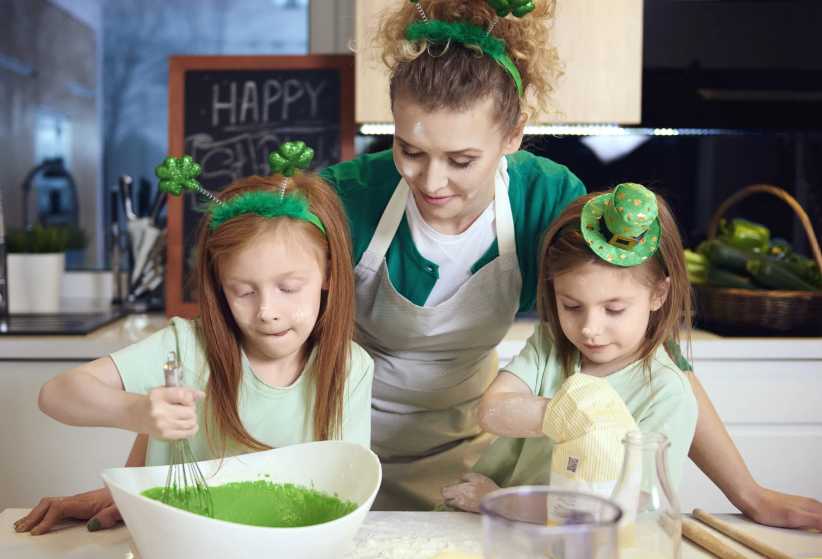Whether you’re just beginning your parental journey or you’ve already got a couple of children, you may have questions about your child’s diet. Perhaps it’s one of these:
Pregnancy
Are caffeinated drinks okay? There is no scientific consensus on caffeine’s effect on the developing fetus. However, during pregnancy (and breastfeeding), the American College of Obstetrics and Gynecology advises limiting the amount of caffeine to 200 milligrams a day. This is the amount in 12 ounces of regular coffee. Some OBs advise their patients give it up entirely until the research is more concrete.
Breastfeeding
Is there anything I can do to prevent food allergies in my baby? There is no evidence that avoiding food allergens while nursing (or during pregnancy) prevents food allergies.
Infant
When is the ideal time to introduce solid food? The American Academy of Pediatrics recommends mothers exclusively breastfeed until about six months of age and then begin to introduce solid foods. But research published in JAMA Pediatrics in July suggests an alternative feeding schedule. It found breastfed babies who ate solid foods at age three months had almost two hours additional sleep and nearly two fewer sleep disturbances per week. Keep in mind that, before making any changes, you should consult your baby’s pediatrician.
Toddler
What can I do to encourage my child to eat vegetables? Read vegetable picture books to your little one! Research published in the May issue of “Appetite” studied 127 toddlers ages 21 to 24 months old. Reading books about vegetables boosted the tots’ consumption and was associated with smaller increases in their fear of new foods and food fussiness.
Preschooler
Why is my “good eater” suddenly turning his nose up at certain foods? This is a time of slower growth and a reduction in appetite. Your child may dislike mixed dishes. If that’s the case, “unmix” the food; put aside ingredients for mixed dishes before assembling the recipe. This also works for a salad or sandwich.
Elementary school age
How far should I go in policing my child’s diet? Don’t criminalize the cupcake. Making a food forbidden often has unintended consequences. Kids with highly controlled diets — where they have only “clean” food around — can become pickier and more resistant. Focus instead on creating independent eaters who have a healthy relationship with food, who can self-regulate sweets and snacks, and who enjoy all kinds of foods without a parent persuading them to eat.
Tween
Does my child need a multivitamin or other dietary supplement? It’s commonplace to worry over whether your child is obtaining enough nutrients from his diet. Ask yourself this: Does your child eat a variety of foods from each food group? If so, he probably does not need a supplement. If he avoids entire food groups due to a food dislike, allergy, or intolerance, seek professional advice from your pediatrician or a registered dietitian nutritionist. Remember, a supplement is just that, a supplement. It can never make up for a poor diet.
Teen
Help! My teen just announced she’s become a vegetarian. At this time of their lives, teens’ concern for animal welfare or desire to exert their independence often results in avoiding animal protein. Vegetarian meals, when planned well, include nutrient-rich foods such as vegetables, fruits, whole grains, and plant proteins. Just make sure she doesn’t replace meat with poor food choices. A caveat: Sometimes a switch to vegetarianism is a way to mask an eating disorder since it’s a socially acceptable way of saying “No” to food in public.
• • •
What are YOUR questions about childhood nutrition? Write me at the e-mail address below, and I’ll do my best to answer them in a follow-up column!
Christine Palumbo is a Naperville-registered dietitian nutritionist and Fellow of the American Academy of Nutrition and Dietetics. Follow her on Twitter @PalumboRD, Facebook at Christine Palumbo Nutrition, or Chris





















